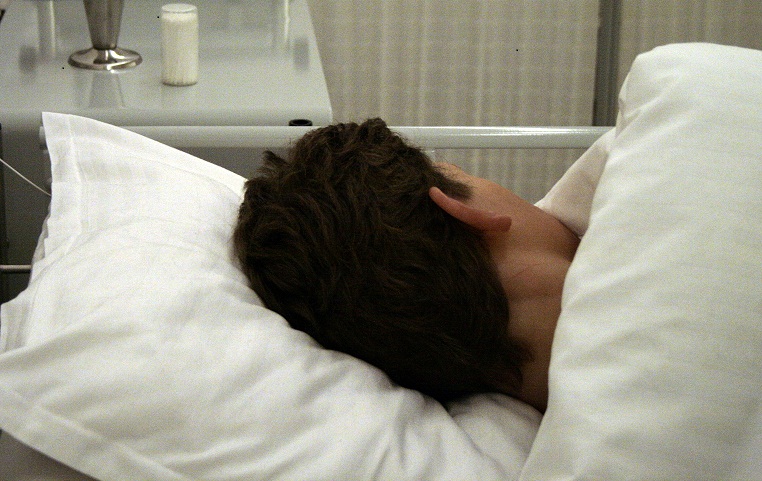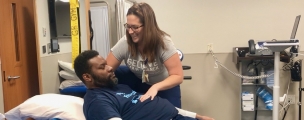My last post revealed some simple sleep habits to keep you happy and healthy. But what happens when you are not healthy? When recuperating from an injury or illness, how does sleep factor in to the recovery process?
After pretty much any bout of illness or injury, serious or not, there’s sure to be one common mandate on the list of things to do to get better: get lots of rest. That holds true whether those are doctor’s orders, grandma’s orders, or mommy’s orders (this does not usually come out of the mouths of dads). Here are some frequently asked questions about sleep and the recovery process.
What should happen during sleep?
Normal sleep can be thought of into two types: superficial sleep and then deep or restorative sleep. During deep sleep, your brain is most at rest. This allows additional oxygen, blood supply and nutrients to be available to the tissues and muscles of your body for healing and regeneration. The time spent in deep sleep over several weeks or a lifetime appears to have the most impact on healing, regeneration and the aging process.
What happens when you don’t get enough sleep?
When you get less than 4 solid hours of sleep per day, performance on cognitive tests decline and outcomes on other physical reaction tests start to deteriorate in normal healthy individuals. You can imagine the deleterious effects of sleep deprivation on someone recovering from illness. For example, there have been studies that showed that while “extra” sleep did not accelerate wound or bone healing, sleep deprived individuals did experience delayed wound healing.
Okay, that all makes sense. But have you tried sleeping in a hospital or when you’re in pain? How do I get rest during rehab?
It’s true — those in need of the most healing are also those who are at most at risk for sleep loss. Whether in a hospital or at home, those recovering from serious injury or illness are more likely to experience sleep interruptions and disturbances.
So what to do? First, focus on limiting sleep disturbances as much as possible, no matter what the environment. This may mean finding sleep positions and medications that best help control pain. It may mean something as simple as making sure that nighttime and daytime are distinct from each other. If confined to a room at home or in a facility, dim the lights as much as possible at night, and during the day let the sunshine in. There are some instances where it is medically necessary to disturb sleep at night, but ask questions to determine how critical it is.
The past decade has seen a rapid increase in research related to the science of slumber. Hopes are that if we better understand the science behind why we sleep, we will also be able to foster improvements in knowing how to manage loss of sleep. Washington State University’s Jim Krueger has spent much of his career researching the biomechanical aspects of sleep. Though there are many unanswered questions, one thing is certain…sleep is as important as the air we breath and the food we eat.
And according to Jim, in the world of recovery, “You can’t hope to have better medicine than sleep itself.” We couldn’t agree more.
We want to hear from you! How did you sleep during your recovery? Any tips that helped you? Any advice to share?







